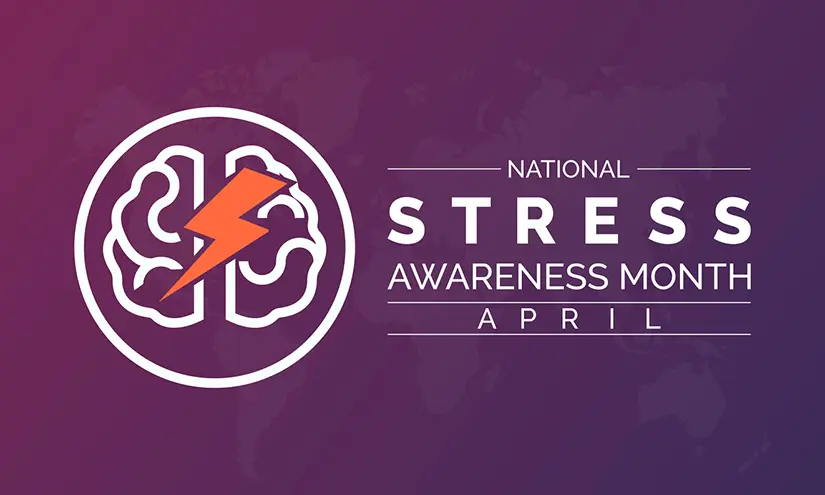
Articles
The Secret to a Happy Holiday: Create a Plan to Reduce Stress and Improve Sleep
There’s a reason you’re seeing more stories about the ways holiday stress impacts your health. While stress about COVID-19 has…
Introducing SleepScore
We deliver accurate data, actionable insights, personalized coaching and proven outcomes your customers need.
Sleep Insights
Last Published on 1st April 2025 by SleepScore Labs

April is Stress Awareness Month – SleepScore Labs is diving into the profound relationship between stress levels and sleep quality. Our latest analysis, drawing from a robust dataset of over 42,000 individuals and 600,000 records, reveals compelling insights into how stress impacts various sleep parameters. Let’s delve into the key findings and implications for promoting better sleep during this important month of awareness.
Why Stress?
It has been repeatedly established that there is a strong connection between stress and sleep (1). This topic is taken seriously due to the significant health risks associated with stress and subsequent poor sleep, such as an increased risk of cardiovascular disease (1). Even a few days of sleep deprivation can have adverse effects on physical health and can elevate cortisol levels, further exacerbating stress (1).
Stress and sleep often interact in vicious cycles. To gain deeper insights rather than making assumptions, our team conducted a big-data analysis of long-term sleep data to understand the relationship between stress levels and dimensions sleep health.
Demographics Overview
Our analysis encompasses an equal gender distribution of 50.4% females and 49.96% males and included 42,253 users.
Total Sleep Time and Stress
Our analysis found that stress levels impacted the duration of sleep. Those experiencing lower stress tend to enjoy longer periods of sleep compared to individuals reporting higher stress levels. Consequently, as stress levels increase, the overall duration of sleep tends to decrease.
SleepScore and Stress
SleepScore, an aggregate measure of objectively measured sleep quality, is closely linked to stress levels. We found that users reporting lower levels of stress generally exhibited higher SleepScores, indicating better overall sleep quality overall. Conversely, those facing higher levels of stress tend to exhibit lower SleepScores, reflecting the potential disruptions in overall sleep quality stress can cause.
Sleep Efficiency and Stress
Sleep efficiency, the ratio of time spent asleep while in bed, is also associated with stress levels. According to our analysis, users with lower stress levels typically had higher sleep efficiency; in contrast, as stress levels increase, sleep efficiency tends to decrease.
Understanding the Impact
Our analysis highlights a consistent link between higher stress levels and poorer sleep quality across multiple measures. As self-reported stress increases, sleep duration, SleepScore, and sleep efficiency tend to decrease.
As we raise awareness about stress this month, these findings underscore the importance of stress management strategies for improving sleep quality and overall well-being. By prioritizing stress reduction techniques such as mindfulness, deep breathing, and gratitude journaling, individuals can pave the way for better sleep and enhanced quality of life.
Since we understand the relationship between stress and sleep so deeply, SleepScore has created an AI-powered visualization meditation tool called DreamScape aimed at improving pre-sleep thoughts and affect. Download the SleepScore app to try DreamScape and other evidenced-based sleep improvement features.
Let’s navigate Stress Awareness Month together by prioritizing sleep health and stress management. Join us in promoting awareness and actionable strategies for better sleep and improved overall well-being.
Sources
About SleepScore Labs
SleepScore Labs is the company changing the world by empowering businesses to solve the world’s sleep problems at scale by driving sleep improvement powered by science and world-leading data and technology. Every health and wellness company can leverage SleepScore APIs to unlock significant value for their patients and consumers. SleepScore Labs was founded by a team of sleep experts from companies, institutions, and organizations such as ResMed, Apple, Philips, and Harvard and after studying more than 400 million hours of sleep, it offers a suite of B2B2C services to help companies improve their health and wellness outcomes.
For media inquiries or interviews with our research team, please contact:
press@sleepscorelabs.com